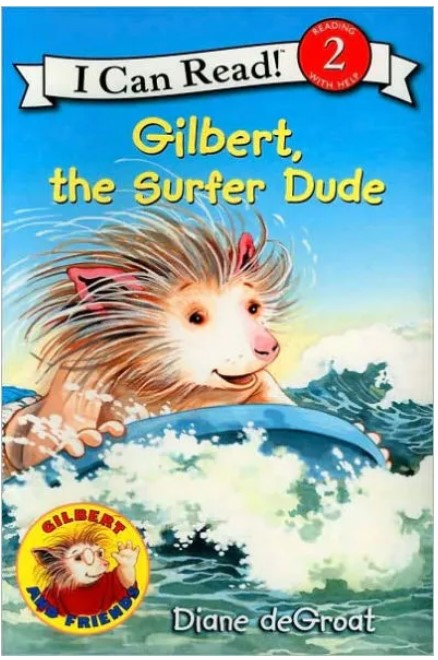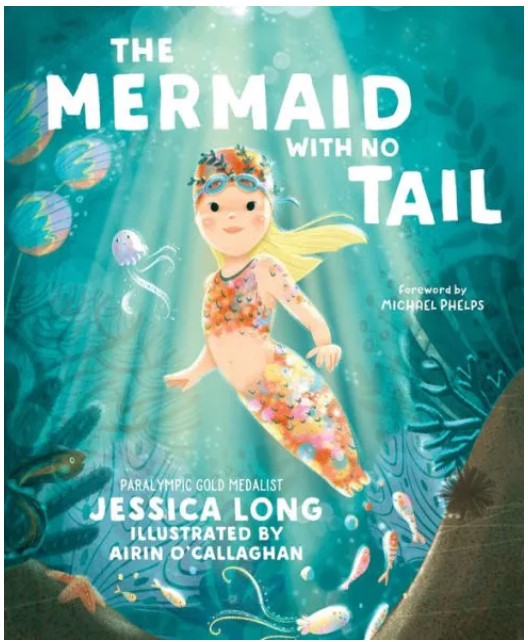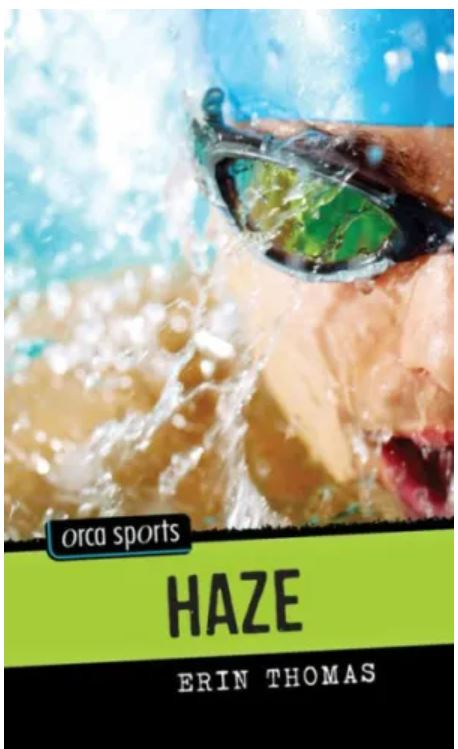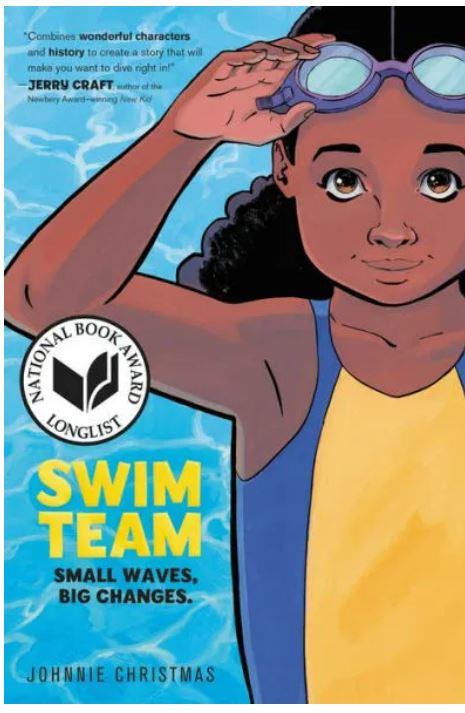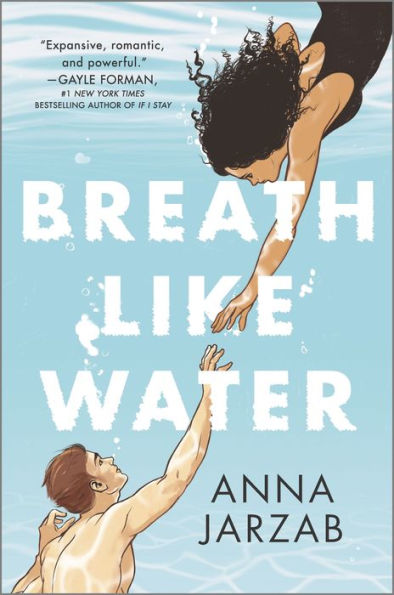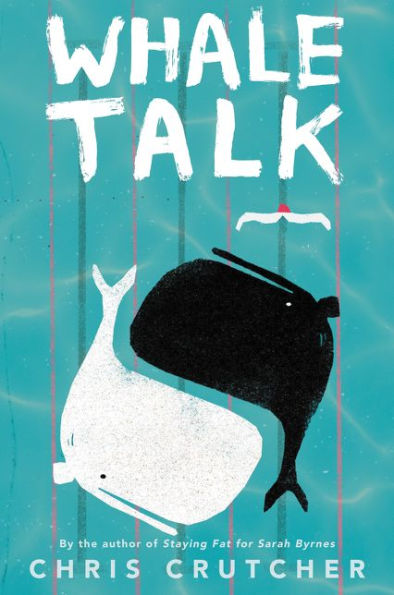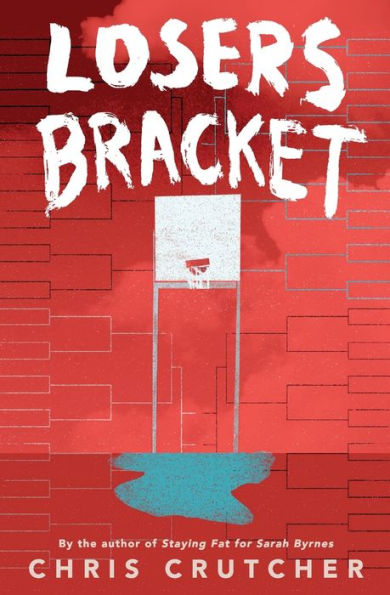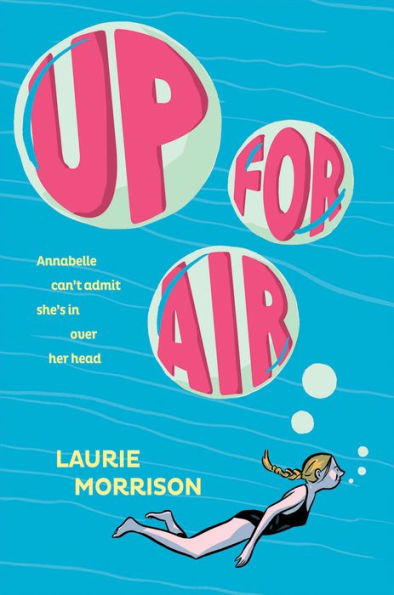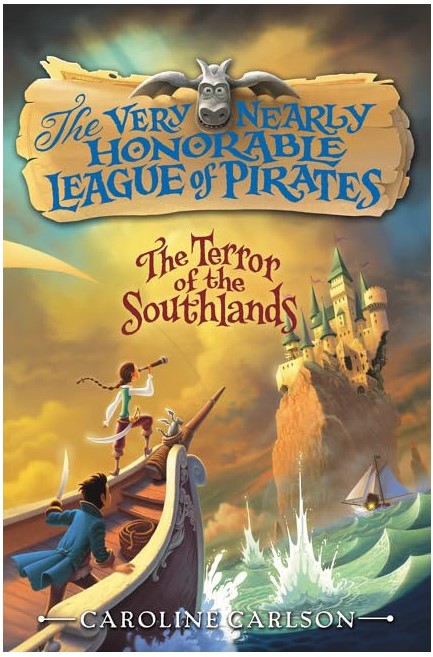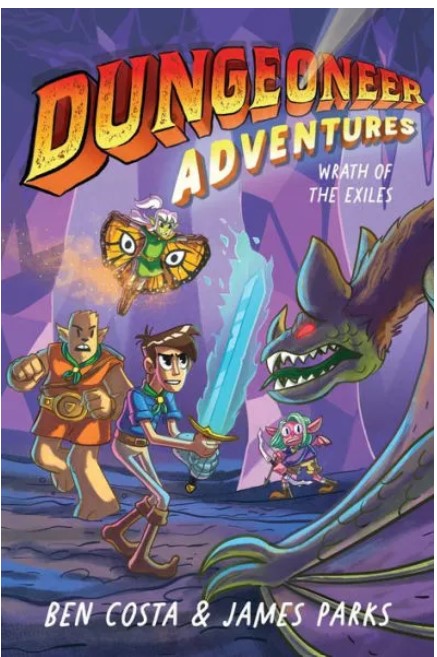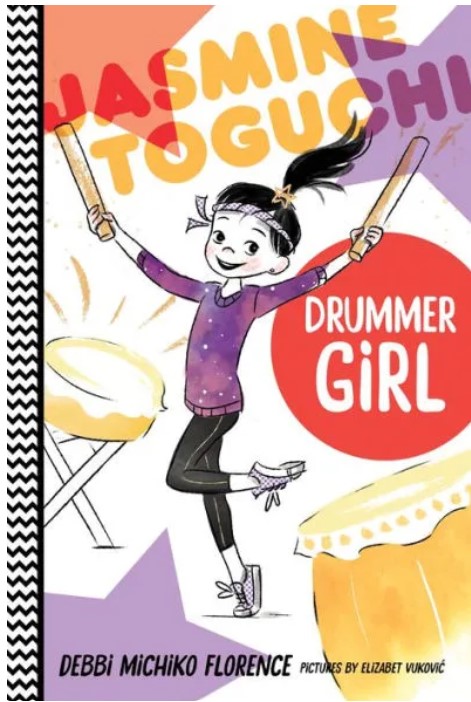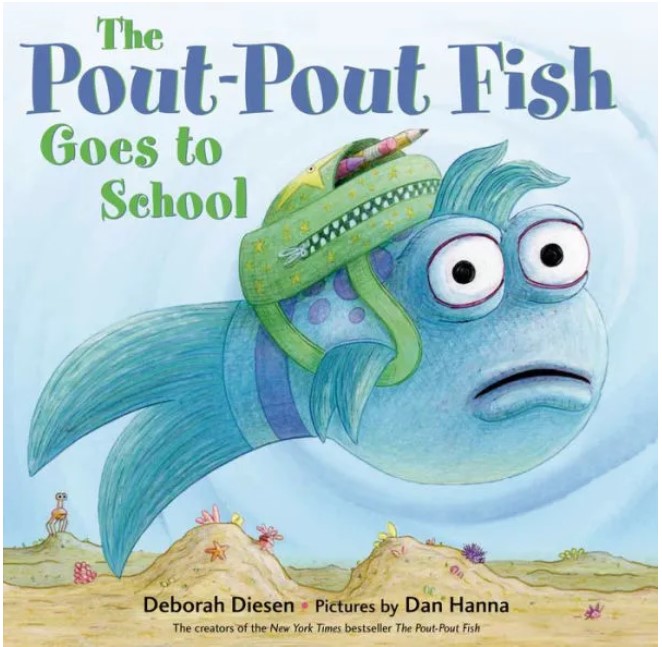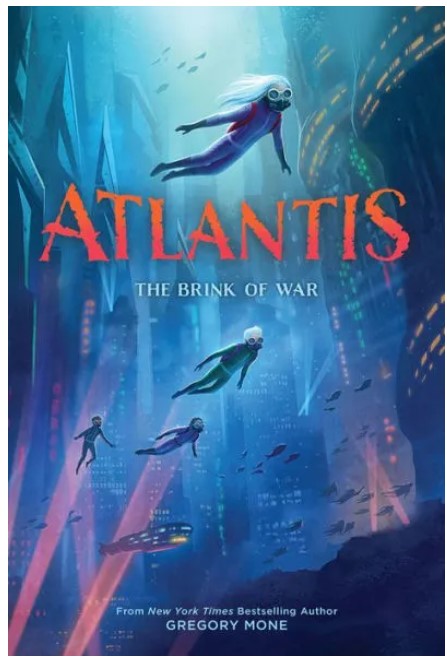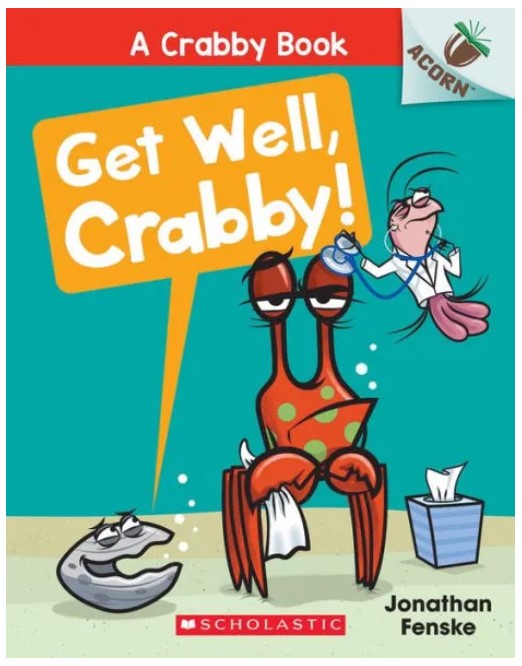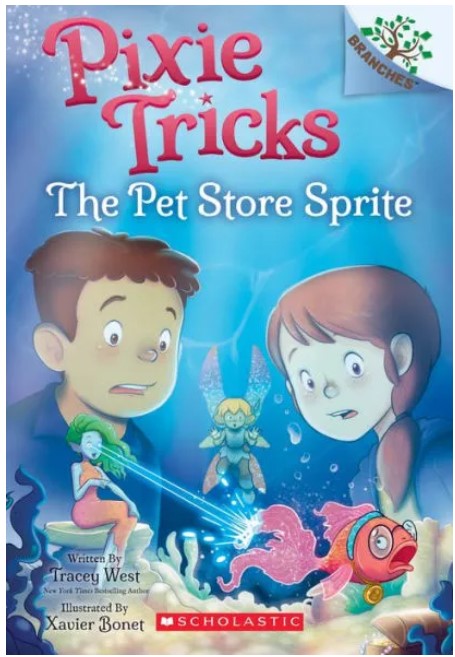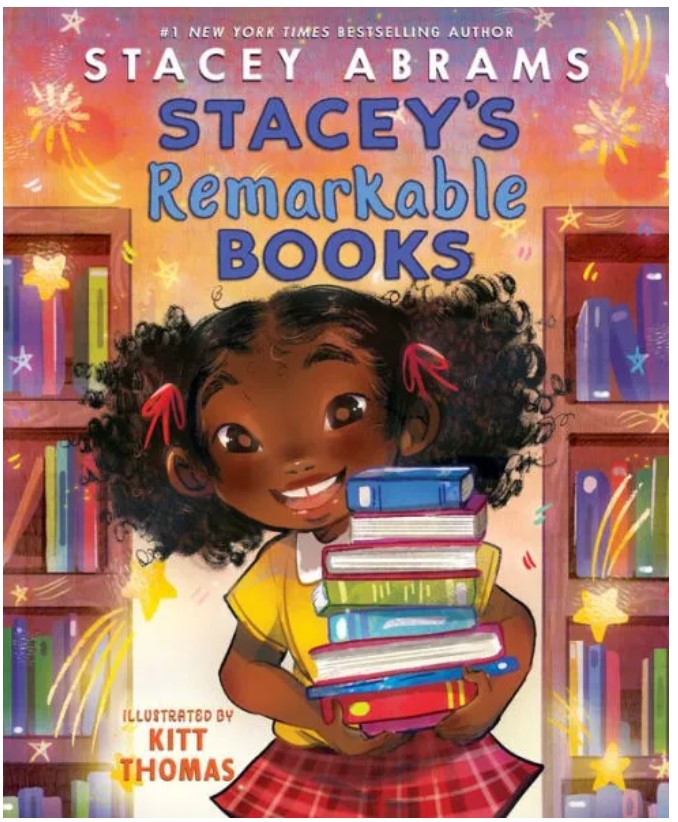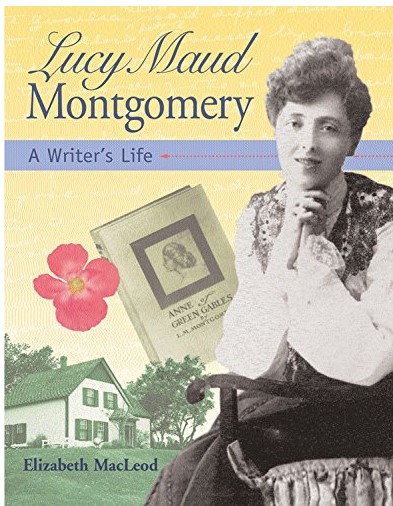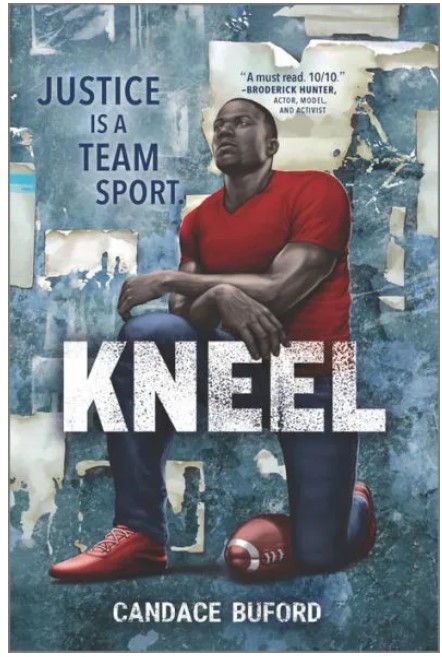Bree can’t wait for her first day at her new middle school, Enith Brigitha, home to the Mighty Manatees—until she’s stuck with the only elective that fits her schedule: the dreaded Swim 101. The thought of swimming makes Bree more than a little queasy, yet she’s forced to dive headfirst into one of her greatest fears. Lucky for her, Etta, an elderly occupant of her apartment building and former swim team captain, is willing to help.
With Etta’s training and a lot of hard work, Bree suddenly finds her swim-crazed community counting on her to turn the school’s failing team around. But that’s easier said than done, especially when their rival, the prestigious Holyoke Prep, has everything they need to leave the Mighty Manatees in their wake. Can Bree defy the odds and guide her team to a state championship, or have the Manatees swum their last lap—for good?
Swim Team is an entertaining graphic novel that shows the importance of perseverance, teamwork, and friendship. Told from Bree’s point of view, Swim Team focuses on Bree’s embarrassment because she doesn’t know how to swim. When Bree enrolls in a new school, Swim 101 is the only elective that she can take, but to avoid being noticed, Bree skips class. When her father finds out, he enlists the help of Etta. With Etta’s help and encouragement, Bree not only learns how to swim, but she also joins the swim team.
With Etta’s help, Bree learns Black people’s history with swimming—this section appears in the shape of a puzzle which ties into Etta’s love of puzzles. “In America, laws were passed that limited Black people’s access to beaches, lakes, and swimming pools.” This section includes short descriptions of Black people who fought the discriminatory laws. The brevity of this section keeps the action moving and may spark readers’ interest in the people who fought for change. In kid-friendly terms, Swim Team highlights the effects of segregation and how it impacted an entire community.
The graphic novel Swim Team will appeal to many readers because the illustrations use bright colors and are full of action. Plus, the easy-to-read vocabulary makes it accessible to all readers. Each page has three to eight simple sentences and some panels tell the story without words. When Bree is overcome by feelings of uncertainty and doubt, her negative thoughts appear in gray blobs, while conversations appear in white quote bubbles which makes it easy to distinguish the two.
While Swim Team hits on difficult topics of discrimination, segregation, and classism, these themes are integrated into the story and never feel like a lecture. Since everything is filtered through Bree’s eyes, the information is kid friendly. While the historical information is interesting, Bree’s personal struggle is what drives the story. Bree is a relatable character readers will root for. Plus, readers will enjoy seeing Bree’s growth in and out of the water. Swim Team is a fun and educational graphic novel that will entertain readers as well as encourage them to try new activities. Even though the story focuses on Bree’s swim team experiences, the graphic novel will appeal to all readers because of the relatable conflicts and the positive lessons.
Sexual Content
Violence
- Etta explains how some people opposed allowing black people to swim in public places. “Opposition to these conditions were often met with violence. From the murder of Eugene Williams in Chicago, in 1919 to acid poured in a pool with protesters in St. Augustine Florida in 1964.”
Drugs and Alcohol
Language
- Oh my God and heck are both used once.
- A member of the Holyoke Prep swim team calls the opponents losers.
- Bree says the students from Holyoke Prep seem like “a bunch of jerks.”
- When Bree and her friends ask Humberto to help them take costumes from the theater department, he is reluctant. One of the girls says, “C’mon, Humberto, don’t be a weenie.”
Supernatural
Spiritual Content
